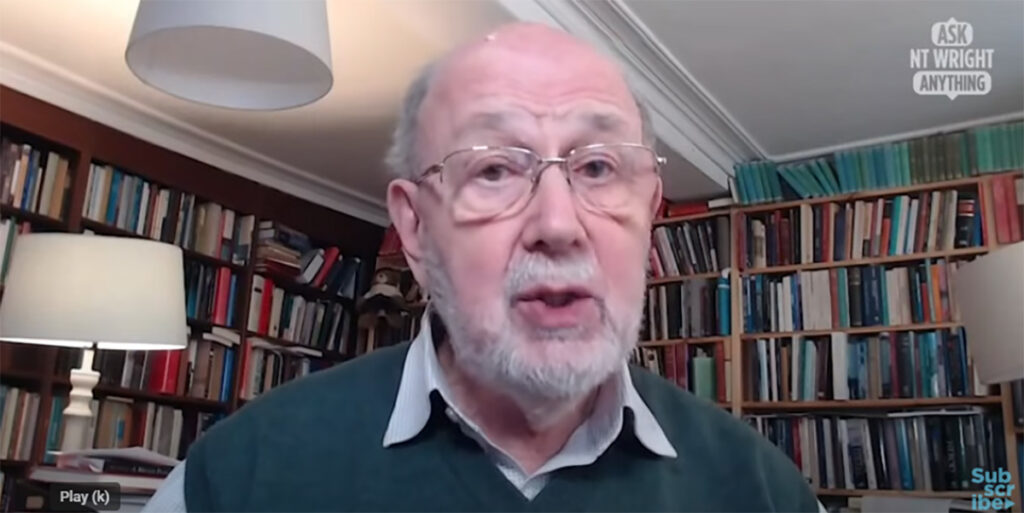Abortion
Why is English theologian N.T. Wright defending abortion?
In a series of stunning statements, English theologian and former Bishop of Durham N.T. Wright, a renowned New Testament scholar, endorsed the killing of pre-born children in the womb in a range of circumstances. In an episode of “Premier Unbelievable” released on June 1, Wright answered the question “Is abortion ever justified?” in the affirmative.
“There are many, many cases where it is about the mother’s health versus the health of the child or whatever,” Wright stated. “And particularly that, as you cited, in cases of rape or in cases of incest, there may be a very, very strong argument for saying this ought never to have happened. And with sorrow, because we do not want to do this in principle, but with sorrow and a bit of shame, the best thing to do is as soon as possible to terminate this pregnancy.”
Wright’s argument here — if it can be called that — is chaotic both logically and morally. If abortion kills a baby, how can you justify it just because the pregnancy “ought never to have happened”? If abortion does not kill a baby, then why should the procedure be pursued “with sorrow” or “shame?” And why is Wright using the abortion activist language of “terminating a pregnancy” rather than being honest about what abortion actually is?
“Now, I’ve seen the debates, I’ve read books about the debates as to at what point it’s okay or at what point it becomes not okay,” Wright continued. “And I know that in my own country, people have pushed for the legislation to be allowed to say right up to the moment before the woman is ready to give birth, that if they decide for whatever reason on an abortion, then that’s okay. And that I find not only wrong but repulsive.”
But, he continues, abortion may be desirable in other circumstances. “At the same time, there may be certain exceptions of which severe deformity might be one, of which certainly incest and rape would be others, and in those cases I would say ‘the sooner the better’ because at a certain point — and I am not medically qualified to say at what point I would draw a line — then this is a viable human being that should then be cherished.”
Wright does not say why abortion might be desirable for eugenic reasons (“severe deformity”), or how a Christian can be morally permitted to “terminate” a living child for such reasons; he also does not attempt to explain why viability would be a morally meaningful benchmark at which point a child is a human being created in the image of God with not only the right to life, but the right not to be killed, should magically receive protection from harm. Wright concludes:
So the whole debate about the woman’s rights, it’s very difficult, it’s very hard for a man to talk about this. And indeed one of the problems has been, particularly in the Roman Catholic Church, when women, particularly say a girl who’s been raped or who’s had incest committed on her, then discovering that unmarried men from the Catholic hierarchy are telling her what she can and can’t do. As people now say, the optics of that are pretty bad. That’s part of the same system of male bullying, which we have to avoid like the plague.
However, having said that, I do think that that sense of respect for God’s creation in all its rich variety is the primary starting point, even if we then have to say with sorrow and a certain sense of this is the least worst option in this situation that there may be some cases of exceptions. That’s about as far as I can get at the moment. And as I say, I’m very much aware of just how sensitive this topic is politically, sociologically, as well as ethically.
It must be said: Wright claims to have “seen the debates” and “read the books,” but I very much doubt that that is the case. Wright is undeniably a brilliant scholar; his work on the New Testament and biography of St. Paul has attracted praise from all corners of the Christian world, including from esteemed Catholic philosopher Peter Kreeft. Wright’s answer here is not only sloppy, logically inconsistent, and morally incoherent; it is reprehensible.
The idea that the correct moral response to a child in the womb suffering from deformity might be to destroy it, “the sooner the better,” is staggering. This is not the language of a Christian, much less a theologian. It is the language of a feticidal eugenicist. I hope he corrects this lethal error, and I hope that people will not be led astray by these wicked words.








